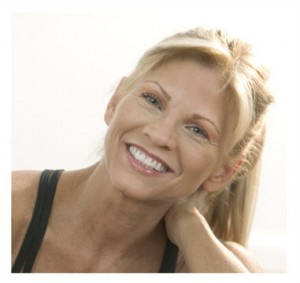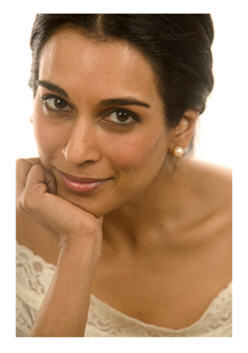She didn’t realize that I was watching. She was in her thirties, blonde, with black eyeliner and mascara expertly applied. She had an upturned nose, and a bright, wide smile. She was trim, yet curvy, and seemed comfortable in her skin.
 I noticed her feet. They were perfectly pedicured, her toe nails painted hot pink, matching the color of her flip flops.
I noticed her feet. They were perfectly pedicured, her toe nails painted hot pink, matching the color of her flip flops.
She was a master at body language as she engaged the somewhat older man in the wine aisle at the supermarket. Who knows whether she’d asked his opinion on a particular vintage, or if they were discussing the Tour de France. But the exchange of energy between them was clear. She was a pretty woman who knew exactly how to use her assets to her advantage.
I thought about the other day, when I asked a repair man to move something for me, and he did. I used a smile, a cold drink, and got help I truly needed.
I’m not thirty-something, and how much longer I can get away with any sort of “effective” flirtation is anyone’s guess. But I know how to play the game, and I love it.
Responding to Beauty
My ideal of beauty, male or female, tends to be dark. Salma Hayek, Penelope Cruz, and Catherine Zeta-Jones – these are the women I find beautiful. As for men, I love dark hair and eyes, beautiful hands, and tall is always attractive. Yet I’ve loved men who look nothing at all like that. The beauty I responded to in them grew from humor, intelligence, from a life lived and the willingness to express it.
We’re jolted by physical beauty initially, but other qualities sustain us – warmth, vitality, generosity of spirit, drive, the engaged mind – whatever elements of character and personality we most admire, and need. Still – we live in a society where we worship standards of youth and beauty that are unattainable for most of us. So we torture our bodies (and our minds) striving to approach those standards at all cost. We tangle ourselves up in their necessity.
Using our assets versus “using”
 When I was younger l had a friend who was the total package: statuesque body, gorgeous face, silky tresses, fierce intelligence, sense of humor. Her looks won her men and opportunities. But not without a price. For years, men never took the time to get to know her. The woman inside.
When I was younger l had a friend who was the total package: statuesque body, gorgeous face, silky tresses, fierce intelligence, sense of humor. Her looks won her men and opportunities. But not without a price. For years, men never took the time to get to know her. The woman inside.
Beauty was her passport and her currency. There were gifts, trips, extraordinary experiences. Men loved squiring her around. She used her physical assets well, and fell back on others as she matured.
So does this constitute “using?”Is this what women are jealous of, and men are drawn to, whether either admit it or not?
Roles?
Clarity in roles for men and women? I see little these days. I see stay-at-home-moms in tacit warfare with those who work outside the home, married women uncomfortable with those who are divorced. Women alone, frustrated, and “unmarketable.” Other women, happily alone.
As for men? Surely many don’t know what to do next, trying to figure out what women want.
What I do know is the sort of woman I am, with all my contradictions and the equally mixed-up mélange of traits that appeal to me in a man.
All’s fair in love and war – and everything else?
We all have assets – charm, vulnerability, brains, kindness, smarts, wit, talent, patience, eccentricity, and yes – beauty for the fortunate few, at least for a time. Was the pretty woman in the wine aisle genuinely attracted to the man, or was she after something? It’s impossible to know. But I don’t fault her for leveraging whatever assets she has at her disposition.
- Is beauty just one more asset of many to exploit?
- Don’t good-looking men engage in the same behavior?
- Where does flirtation end and manipulation begin?
- What about flattery? Sex? Or is everything fair game?
Like most women, I fall into that middle ground of “reasonably attractive,” able to work with the hand I was dealt. As I’ve matured, I see that women are products with a particular shelf life. In our professional lives. In our personal lives.
Or so it seems in American culture.
Does that justify using everything we’ve got to survive, when we can, for as long as we can? Is all fair in love, war, and everything else – including using beauty and sexuality to our advantage?
Salma Hayek and Penelope Cruz — an excellent combination. Others think so, too: they teamed up to make the comedy “Bandidas.” While it’s not a Latina version of Brokeback Mountain, it’s worth watching just for smoldering star power. And they deploy their assets as best as they can in a PG-13 movie. I wrote something about it on Kesher Talk at the time Brokeback Mountain lost at the Oscars, with the headline “H’wood Homophobes Nix Dix Pix; Chix-Lix Flix Clix?” http://www.keshertalk.com/archives/2006/03/hwood_homophobe.php
Fascinating question, and one for which I don’t have a good answer. I do know I think there’s an immense double standard here, as in so many places between the genders. My instinct is to say that the way that many women lambast the woman who “uses” her looks is just about jealousy, though I do know the feeling of disappointment when an intelligent woman backburners her brains because that is not what is prized.
A good question to mull, and I’m sorry I don’t have a more coherent response.
I never had the experience that your friend had, BLW, of being a trophy to men but I have had odd experiences with beauty.
I was a pretty kid but then, during adolescence, I developed a congenital abnormality in my jaw as an adolescent, which mainly meant that from the nose down I looked like Dudley Do-Right.
Suddenly at 29 I had my jaw surgery, my jaw was wired shut during my recovery, I lost 50 pounds, and I got divorced. It was like the story Pygmalion: I woke up recreated. Suddenly I was pretty, and thin. I would leave my apartment and men would follow me places. It was especially weird because inside I was the same person as before; the same person that, perhaps, those people would never have looked at.
And there was certainly power in that. I don’t mean in a Machiavellian way. But to me there was so much power in knowing that I wouldn’t be rejected if I spoke my mind to a boyfriend about our relationship. Power in knowing that no one would blurt out “you’re ugly” or some other insult. It was especially powerful because I had spent all those years unpretty and unwanted and it created a sensitivity inside of me.
There are many kinds of invisible in our culture, aren’t there. Or worse. For things we have no control or little control over. Thank you for sharing your experience, Linda. It’s illuminating.
Hey, look at Meryl Streep! I think our shelf life has increased a little – especially if you adapt to your own maturity level. A 50-year-old attempting to look 20 is not pretty. However, I’m seeing more and more women look better as the years go by who clearly like themselves a lot more than they may have in their 20s. Cliche-sounding, I know, but I’m sticking by it!
In my life I never thought beauty for an asset was and not important. It never seemed important. I was young. It didn’t matter to my x-husband in our 22 year marriage, didn’t care what I did to look better, he still cheated, but I tried all kinds make up hair color etc.. Now I am really free to put my assets out there. But if there are issues like social anxiety, it’s hard to be approached, or vice versa. I am getting stronger and I believe I see more women over 55yrs. looking better. But for me I feel its fear that keeps me from putting my best out there. Thanks for listening to me.
Louise